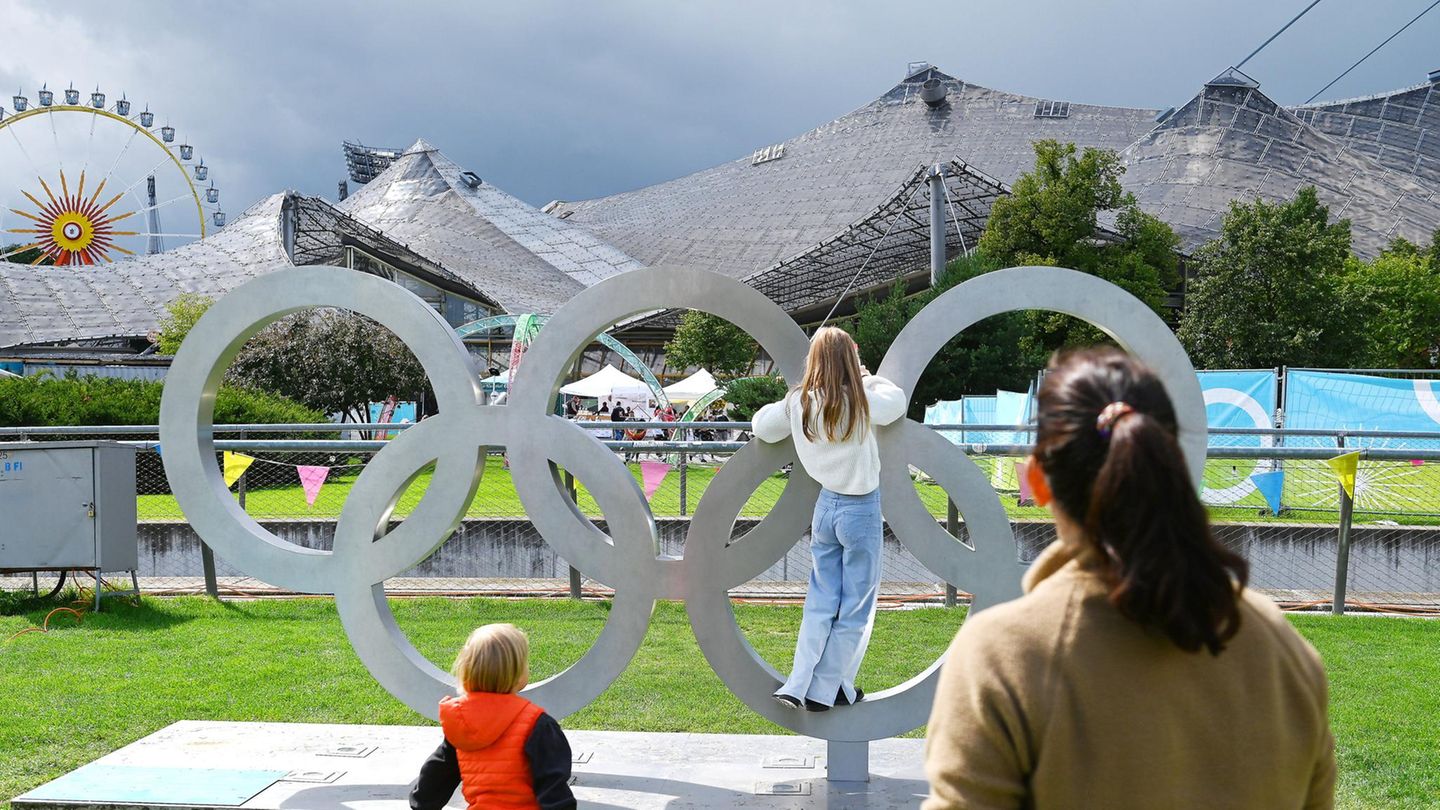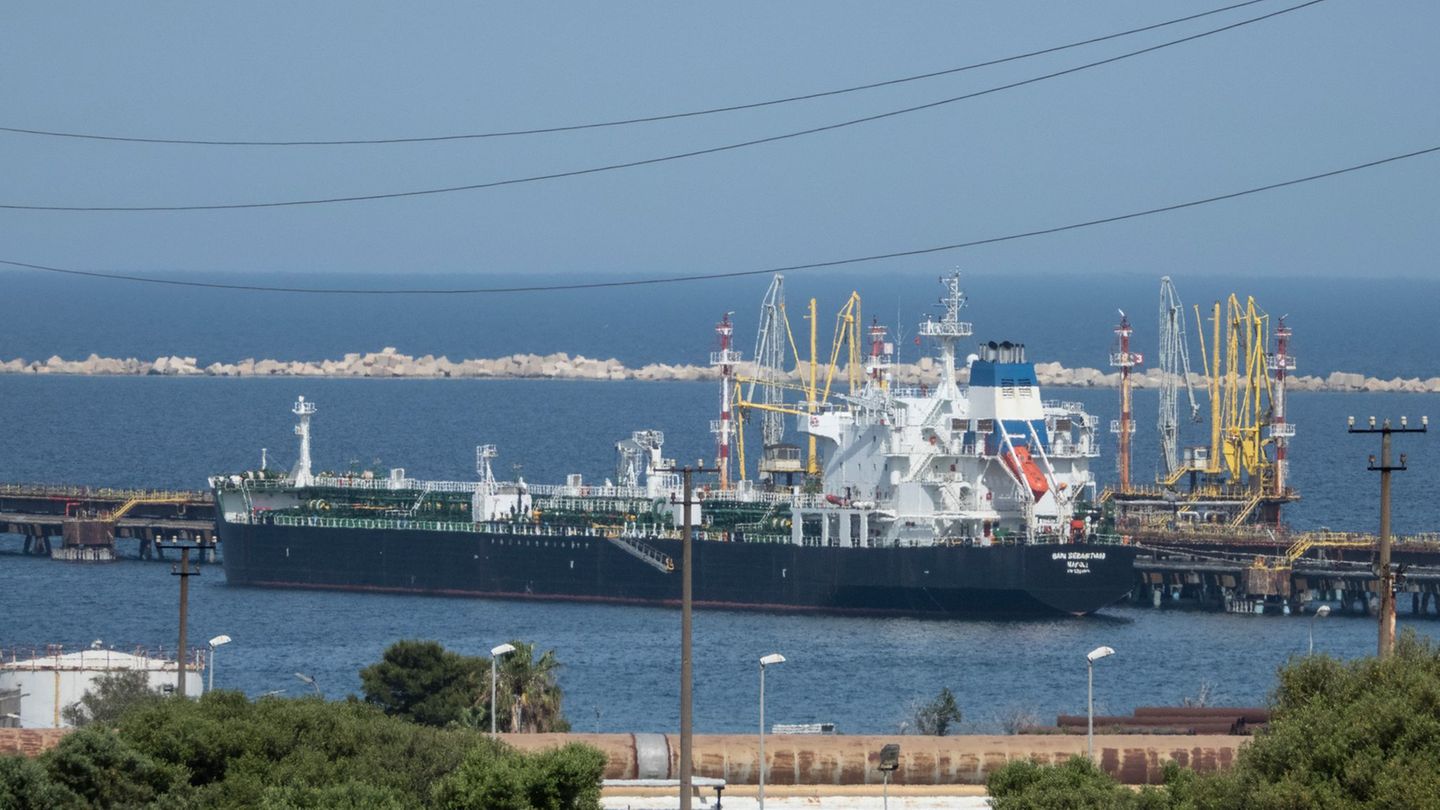Major sporting events
Munich wants the Olympics – but is it even worth it?
Copy the current link
Add to watchlist
Munich voted in a referendum to apply to host the Olympics. There are also hopes for economic stimulus. But does something like this really pay off?
The people of Munich have for them voted for their city’s Olympic bid. Around 66 percent said “yes” to possible summer games in 2036, 2040 or 2044 in a referendum on Sunday.
Bavarian Prime Minister Markus Söder is pleased. This is a great signal for the sports city of Munich. The other German applicants could practically pack in.
He doesn’t see any practical hurdles either: “We don’t always have to do everything from scratch. We have almost everything there.” Munich’s mayor Dieter Reiter adds: “A few thousand apartments will be built there, which will then remain permanent.”
Olympia at home, So it’s just a great thing. Really?
What the Olympics in Munich would cost
What Söder and Reiter didn’t say in yesterday’s PR hype: the Olympics cost billions. Experts at the Technical University of Munich have estimated the necessary expenditure at 18 to 21 billion euros. The Munich people OlympiaPlanners mention expected costs of 13.5 billion euros.
Since the 1960s, however, no host city has met its originally planned Olympic budget, as a recent survey by the University of Oxford showed. Even the celebrated Paris Games in 2024 were twice as expensive as initially calculated.
The referendum alone cost around 6.7 million euros, including 1.8 million for the information campaign. In addition, there are the application costs, which in earlier years were 30 to 40 million euros. DThe German Olympic Sports Confederation (DOSB) assumes a maximum of 10 million euros.
However: The final bill for Munich’s failed bid for the 2018 Winter Games was more than 33 million euros.
What the Olympics would bring
For Munich, Bavaria and Germany, the event would probably mean a general image gain. However, it is difficult to estimate or quantify this effect.
The Munich people OlympiaPlanners are hoping for a push for the Bavarian capital in several areas:
- The new Olympic Village would create several thousand homes.
- As in 1972, a realignment could give a boost to local transport.
- The federal and state governments are offering money for urban development and projects that are difficult or impossible to achieve without the Olympics.
Cost-benefit analyzes of past major sporting events show that short-term impulses from, for example, tourism and the construction sector are measurable, but… no sustainable economic growth generate.
2024 Summer Olympics in Paris
The 2024 Olympic Games in Paris cost a total of around 8.9 billion euros. Of this, 6.6 billion euros were public costs that had to be borne by the French state or the city of Paris. According to the Center for Law and Economics of Sport (CDES), the games brought in between 6.7 and 11.1 billion euros for the Paris region.
The former athletes’ village in the Saint-Denis district of Paris now offers around 1,000 new apartments, around half of which will be offered as social housing or at reduced rents.
The apartments in the Olympic Village, which are offered on the open rental market, are more expensive per square meter than in the rest of the city, says Oriane Filhol, deputy mayor of Saint-Denis. This is mainly because they are new buildings.
The bottom line is that the Paris Games were probably not a financial disaster. They only brought modest GDP growth of around 0.07 percentage points, but particularly helped the French Capital city in image, housing construction and Labor market.
Football World Cup 2006 in Germany
The 2006 World Cup in Germany is considered an economically successful event: The DFB recorded a net profit of 56.5 million eurosalso through higher ticket and advertising revenue.
According to the, the investment costs amounted to: German Institute for Economic Research (DIW) to around 3.7 billion eurosprimarily for stadium and infrastructure modernization. The latter are also noticeable in the long term. Most of the expenses were borne by municipalities, states and sponsors – According to the DIW, a direct burden on the federal budget was low.
Economic analyzes show that the German gross domestic product experienced hardly any growth effects from the World Cup – the “summer fairy tale” effect remained predominantly psychological.
with material from the dpa news agency
Source: Stern




